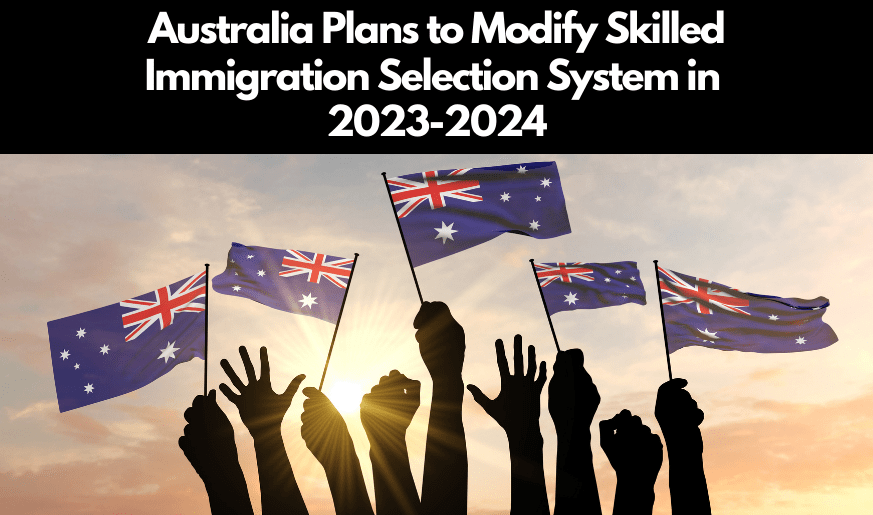051 8439995, 042 35911332

On Thursday, Australia suggested a revamp of its immigration system aimed at expediting the entry of highly skilled workers into the country and facilitating the process for them to obtain permanent residency.
The Australian federal Labor government announced plans to modify the current skilled Australian immigration selection system, known as the points test to identify individuals possessing the necessary skill sets required for the country’s economy moving forward.

Australia’s Home Affairs Minister Calls for Changes to Flawed Australian Immigration System
Home Affairs Minister Clare O’Neil stated in a speech at the National Press Club that the current Australian immigration system is flawed, failing not only businesses and migrants but also Australians, and changes need to be made. As the country competes with similar nations like Canada and Germany for skilled migrants, the government aims to streamline the visa process for high-skilled professionals and improve measures to retain international students. The surge in demand for skilled migrants has been exacerbated by an aging population.
Australia to Allow Temporary Skilled Visa Holders to Apply for Permanent Residency
O’Neil said that skilled visa holders who could not apply for permanent residency before will have the chance to do so by the end of this year, but it won’t increase the number of permanent migrants in Australia.

Australia Increases Annual Intake of Permanent Migrants and Raises Migrant Wage Threshold
The country increased its yearly intake of permanent migrants to 195,000 in September, which was 35,000 more than before, to help businesses dealing with staff shortages. They promised extra staff and funding to make visa processing faster.
From July 1, the government plans to increase the migrant wage threshold for temporary skilled workers from A$53,900 to A$70,000 ($46,250), the first increase since 2013. The strict limits on permanent migration in the Australian immigration system cause around 1.8 million guest workers to remain “permanently temporary.”
Australia to Offer Pathways to Permanent Residency for Temporary Skill Shortage TSS Visa Holders by the End of 2023
An announcement was made that by the end of 2023, holders of the temporary skill shortage TSS short-term occupation stream visa will be granted access to pathways for permanent residency under the current permanent Australian immigration program. This news provides a sense of relief for migrants by providing them with certainty regarding their continued residence in Australia. It also addresses the issue of labor shortages for employers.
Streamlining the Australian Immigration Visa System for Improved Efficiency and Outcomes
To simplify the acquisition of necessary skills for the Australian immigration system and align with the jobs and skills market, the government plans to streamline the visa system by reducing the number of visa categories. This approach is expected to yield favorable outcomes for migrants and Australia by facilitating a faster turnaround.
Recommendations from Review for Albanese Government’s Immigration Policy
It remains uncertain which recommendations of the review the Albanese government will adopt. Still, a section released before Clare O’Neil’s speech suggested the elimination of skills lists, increased admission of workers in caring professions, and addressing lengthy wait times for family visas.
Moreover, the released review section highlights that the government’s skilled occupation lists for employer sponsorship are outdated and lack evidence of success. The review notes that these lists fail to reflect current or anticipated skilled labor needs, including those required for transitioning to a net-zero economy and developing critical and sovereign capabilities.
